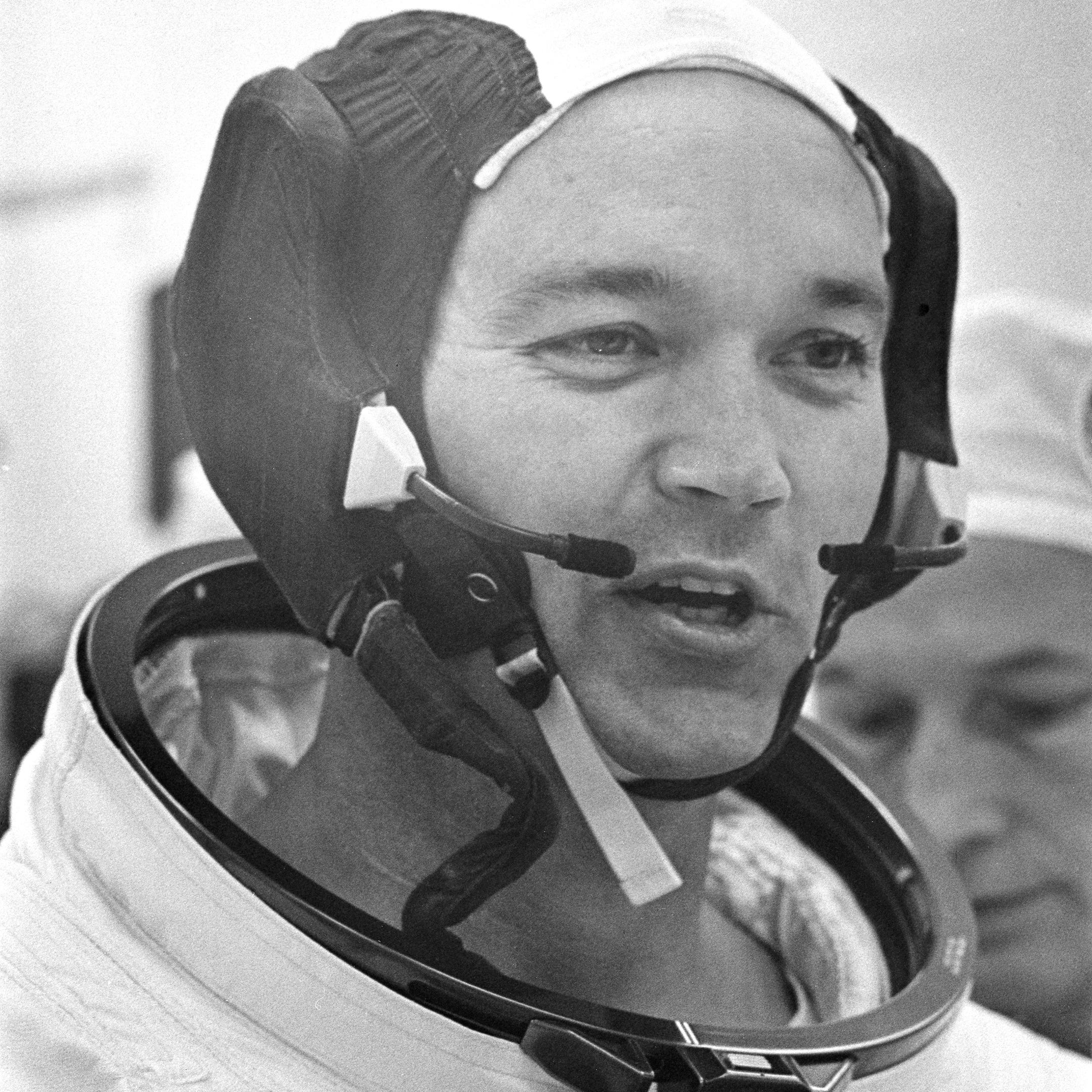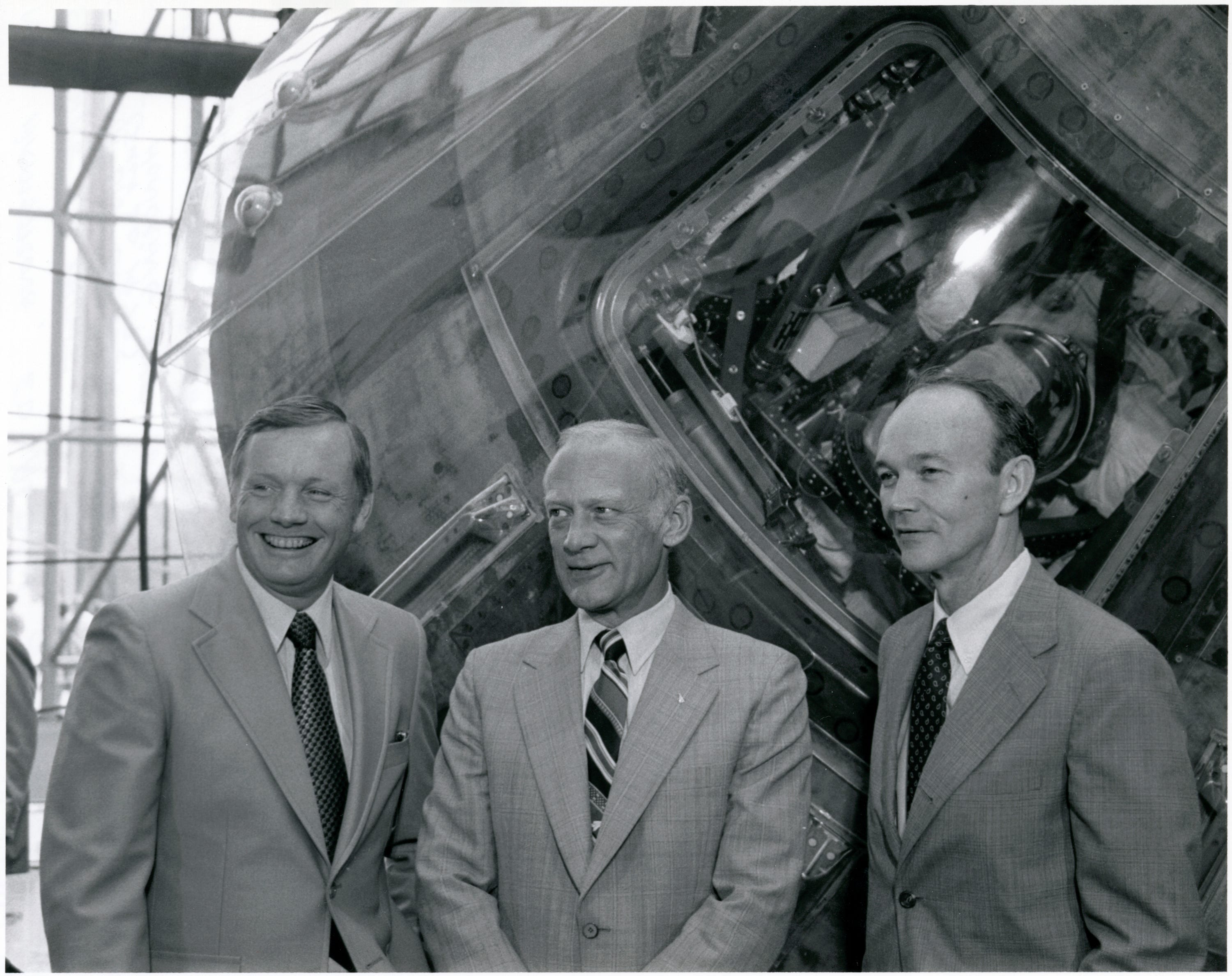

For Apollo 11 astronaut Michael Collins, the success of the historic lunar landing in 1969 came down to … mice?
Collins, who piloted the Columbia module circling the moon as co-workers Neil Armstrong and Buzz Aldrin walked on the surface, said the mission was never fully considered a triumph until it was clear the astronauts had not brought back deadly pathogens from space.
For 21 days immediately after their return, NASA quarantined the trio with a colony of white mice to assess whether it was safe to let them out. If the mice survived without complications, the astronauts could go home.
“The three of us went to the moon and came back successfully. Was that a great success? Was that good, terrific all the way around? It depended on the white mice,” Collins told USA TODAY in a recent interview.
“So … which were more important: the mice or the men? I came to the conclusion that the mice were more important.”
Collins, now 88, spoke with USA TODAY on the eve of the 50th anniversary of a mission that forever expanded humankind’s imagination of what was possible.
The former U.S. Air Force general talked about the concerns he had about returning to Earth without Armstrong and Aldrin, his tepid enthusiasm about NASA’s plans to return to the moon, and how no one should call Apollo 11 crew members heroes.
“Astronauts are not heroes,” he said flatly. “We knew what we were supposed to do. But that’s what we’d been hired to do. It was not above or beyond the call of duty. It was our duty and we performed it.”
The following is a lightly edited transcript of Collins’ interview with USA TODAY.
QUESTION: What do you remember most about the mission and your confidence in its success?
ANSWER: I consider a mission like that, a flight to and around the moon, back to earth as a long, and very fragile daisy chain of events. And any one of those, if it broke, screwed up the remainder of the chain. What I remember is that it was a complicated trip and I was amazed by the fact that all our equipment worked 100% to perfection. I’m accustomed to things breaking in machines that fly in the air and God knows there were plenty of things that could have broken on that flight along that fragile daisy chain. None broke. Everything worked as advertised.
Q: I read about the "secret terror" you harbored, that if the Eagle lunar module failed to launch Armstrong and Aldrin back from the moon’s surface to Columbia, you would be returning to Earth without them. How big was that fear?
A: Clearly that was one of the obvious links in that (daisy) chain and an extremely important link. We loved to have duplicates and redundancy in all of our equipment, but it was not possible in the case of the lunar ascent module. Just one tiny little thrust chamber. If it didn’t work, they were stuck forever on the surface of the moon.
This was nothing that we had ever discussed. We just didn’t talk about things like that. Of course, they were intelligent men. They knew exactly what their odds were. Likewise, here. And, yeah, that concerned me a lot. I would have been ‘that guy who left them up there on the moon to die.’ It would have been an awful, terrible, national catastrophe.”
Q: How disappointed were that you didn’t get to walk on the moon?
A: Of course, I did not have the best seat on Apollo 11. But I can say with complete honesty I was absolutely delighted to have any seat on Apollo 11. It was a culmination of landings and in the back of mind it was what John F. Kennedy had told us to do. We were going to do it. And my being able to be a part of it, even if it was a small part, suited me just fine.
Q: You’ve often been described as the loneliest person in the universe during those hours when you were orbiting the dark side of the moon while Armstrong and Aldrin were on the lunar surface? Did you share that sentiment?
A: No, I thought it was ridiculous. I couldn’t understand. When we returned to Earth and went through our debriefings, the whole focus of the press attention when it came to me was "wasn’t I the loneliest person in the whole lonely space program in that lonely orbit behind the lonely moon, more lonely than any previous lonely people had ever been lonely?" And I thought that was ridiculous.
Q: When did the enormity of Apollo 11’s accomplishment sink in?
A: We all recognized it, but it got reinforced to us after the flight when were privileged to go on an around-the-world tour. I was amazed. I thought we would get: ‘Well you Americans finally did it.’ And instead everywhere we went, (people said): ‘We did it, not you. We human beings left our home planet and went elsewhere. We did it.’ And I thought that was a wonderful reaction and, to me, a surprising one. As I look back on it after 50 years, I try to think what (other) event has unified opinion worldwide. There may be other examples, but I don’t know what they are. I think Apollo was one of a kind in that regard.
Q: Does the prospect of returning to the moon excite you?
A: No. Mars is a much more interesting place. I think there’s a lot of technical merit to going back to the moon before setting sail for Mars. (But) I just see activities in and around the moon as being a delaying and a factor that will not only drive the time scheduled (for a Mars mission) but it’ll drive the cost way up.
Q: Did we make a mistake by not maintaining a presence on the moon after we first got there?
A: No. I think we did just fine.
Q: President Trump is pushing to speed up a return to the moon by 2024, several years sooner than the original schedule. Do you worry the rush could compromise NASA’s long-cherished emphasis on safety?
A: In preparation for Apollo, NASA was reasonably hard-assed about safety. We worried about it and I think NASA would continue to have that worry. They don’t want to see people get killed in their pet program. So, I wouldn’t worry about safety falling into a lower priority just because we’re returning to the moon by some politician’s deadline.
To read more profiles from FLORIDA TODAY's special series, the People of Apollo, visit floridatoday.com/moonlanding.